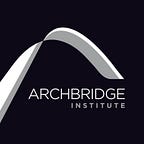Archbridge Institute Welcomes Research Fellow Noah Trudeau
Noah Trudeau, co-author of the State Occupational Licensing Index, discusses his research on licensing and lifting barriers to human flourishing.
The Archbridge Institute is excited to announce our newest research fellow, Noah Trudeau.
Dr. Trudeau is an assistant professor of economics in the Shields School of Business at Saint Francis University and a research affiliate with the Knee Center for the Study of Occupational Regulation at West Virginia University. His research specializes in occupational regulation, with a specific focus on the intersection of economic history and the study of barriers created through regulatory action. He earned his Ph.D. in economics from West Virginia University.
Recently, Dr. Trudeau co-authored with Dr. Edward Timmons the Archbridge Institute’s new “State Occupational Licensing Index” (SOLI) report. The index is an annual measure of occupational licensure across all 50 states plus DC.
On welcoming Dr. Trudeau as a Research Fellow, Archbridge President and CEO Gonzalo Schwarz said:
I’m excited to officially welcome Noah to the Archbridge team. He is the lead co-author of the Archbridge Institute’s new State Occupational Licensing Index, and he is a valuable partner in our mission to uncover barriers to social mobility.
In addition to co-producing the annual index, Noah and senior research fellow Ed Timmons provide research insights and testimony for state policy reform. Noah’s expertise will help us expand our efforts to relieve the burden of licensing all across the US.
You can follow Dr. Trudeau on Twitter @EconTrudeau.
In an interview with Archbridge President and CEO Gonzalo Schwarz, Dr. Trudeau addresses his research on licensing and lifting barriers to human flourishing:
Why do you think occupational licensing is such a crucial topic for expanding human flourishing?
The trend over the past century has been to license more occupations and more strictly license the occupations that are already licensed. At its core, there is a place for licensing to protect public interest, but licensing also gives an avenue for special interests to lobby for restricting competition under the guise of public interest. For everyone to flourish, we need to avoid placing unnecessary barriers between them and being productive. I can see areas where occupational licensing places those barriers.
What have you found to be the most interesting aspect about studying occupational licensing and regulation?
Occupational licensing and regulation are so diverse. When states have discretion over anything, they all tend to do it differently. So there are always great opportunities for comparison on what works and what doesn’t.
Can you summarize some of the key takeaways from the recent State Occupational Licensing Index you co-produced with Archbridge Institute senior fellow Edward Timmons?
The big takeaway is that it is possible to put all of the states and DC on the same scale for comparison when it comes to barriers-to-entry through occupational licensing, and we see some states stand out in putting up a lot of barriers. Arkansas, Texas, and Alabama (my home state), unfortunately, stand out in that way. I think some of the most interesting takeaways from the SOLI are the occupations that ended up “Most Uniquely Licensed.” I was really surprised to find that some occupations are only licensed in one or two states.
What are a couple of the most bizarre licenses you have encountered in your work?
Most people that work in licensing would probably point out that Louisiana has a license for florist, but I think Dance/Movement Therapist is one that is unusual to me. One that stands out as surprisingly restrictive is funeral director or mortician. Every state and DC except for Colorado licenses them.
One of your interests as an academic is focusing on pedagogy. Why do you think that’s important?
I’ve always loved teaching. A big part of being an academic, fundamentally, is teaching as well. Whether I’m teaching about restricting competition to my ECON 101 class or to Congress, it’s important to do it effectively. Economics is nicknamed “the dismal science.” Studying pedagogy helps make it a little more interesting and fun.
